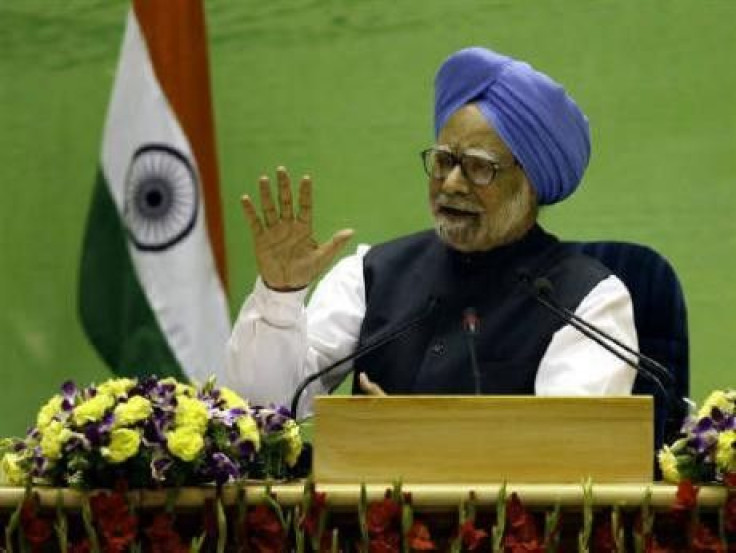India's PM Manmohan Singh Sees 7 Percent Economic Growth Despite Global Worries

India's Prime Minister Manmohan Singh said on Sunday the economy would likely withstand an uncertain external environment to grow about 7 percent this fiscal year, which is lower than a revised forecast of about 7.5 percent issued by the government last month.
However, Singh said India's high domestic savings could help achieve a 9-10 percent growth rate in the medium term.
The Indian economy is slowing on a combination of feeble growth in the United States and Europe, a ratcheting-up of interest rates to quash high inflation, and decision-making paralysis in government.
Growth at 6.9 percent in the quarter ending September was the weakest in more than two years, obliging the government to pare the forecast for the fiscal year to end-March 2012 to about 7.5 percent from 9 percent made in last year's budget.
Despite an adverse international environment, the Indian economy is expected to grow by about 7 percent this financial year ending 31st March, Singh said in an address in Jaipur, at Pravasi Bharatiya Diwas, a gathering of Indians living abroad, made available by his office.
However, we hope to bring back the rhythm of our growth processes to sustain an annual growth rate of 9-10 percent in the medium term. Our domestic savings rate, which currently stands at 33-35 percent of our [gross domestic product], will greatly facilitate the realization of our growth objectives, he added. Singh also said the fight against high inflation was yielding results, leading to an improvement in the situation.
India's headline inflation has stayed above 9 percent for a year, despite 13 rate hikes by the Reserve Bank of India since March 2010.
However, a rapid slowdown in food inflation in December has raised hopes of a cooling in overall inflation. The food price index fell an annual 3.36 percent in mid-December, the first drop in nearly six years.
© Copyright Thomson Reuters 2024. All rights reserved.











